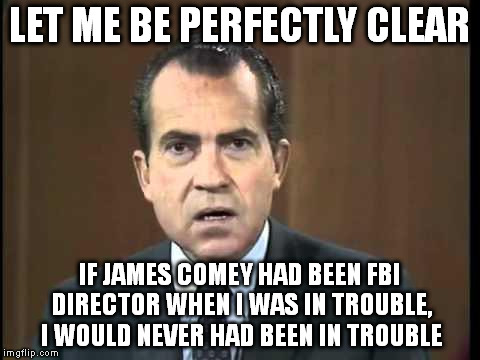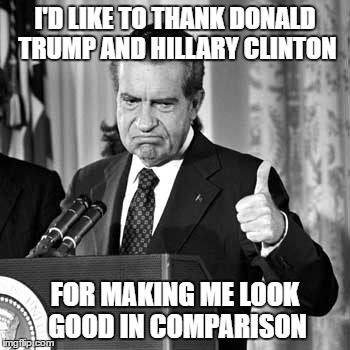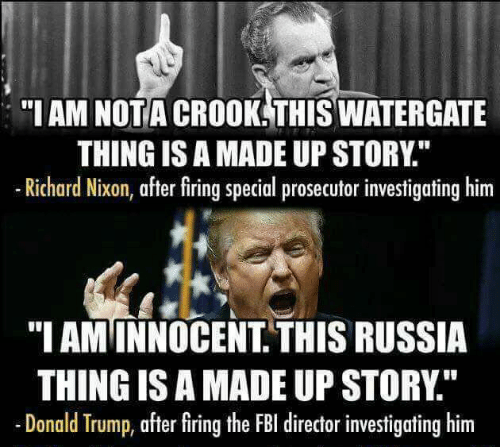
In regards to executive scandals, Nixon v. Fitzgerald (1982) said the President has absolute immunity from lawsuits based on his official acts.
The facts of Nixon v. Fitzgerald are somewhat interesting. Ernest Fitzgerald (Plaintiff) was fired from his job with the US Air Force because of going over budget on military endeavors. President Richard Nixon (Defendant) revealed that he fired Fitzgerald. Later, a government memo surfaced stating Fitzgerald “had very low marks of loyalty” and recommended “they let him bleed”. Consequently, Nixon admitting to firing Fitzgerald; however, Congress argued for his absolute immunity.
Here’s the issue before the Supreme Court: Does the President have absolute immunity from lawsuits while in his official capacity as the President of the United States?

The Supreme Court laid down the following rule: The President has absolute immunity; therefore, he’s shielded from lawsuits while in his official capacity as President of the United States.
Ironically, this lawsuit happened after Richard Nixon left office. It took years for the lawsuit to make it through the courts. Finally, the case happened in 1982.
By the time of this case, the Saturday Massacre happened. The news story broke about a break-in at the DNC headquarters. America learned about the Nixon administration connection to the break-in at the Watergate Hotel. The public learned about secret tapes at the White House. We learned Special Prosecutor Archibald Cox subpoenaed the court for those tapes, which led to Nixon firing DOJ officials down the line to cover up the scandal. The people learned about Solicitor General Robert Bork firing Cox. Eventually, impeachment proceedings followed in the Senate. Although the impeachment charges never stuck, Nixon resigned from office
Interestingly, a question comes to mind about the absolute immunity of the President: Does the pardon power of the President put the President above the law? And can the president pardon himself? That being said, President Gerald Ford pardoned Nixon for all his past and future acts while in his time as president. Essentially, in doing so, Ford nullified the Supreme Court’s decision and wiped out due process; that being said, perhaps, the president was above the law.
Strangely, this case may impact the current Trump Twitter lawsuit. In this litigation, President Trump is being sued for blocking people on Twitter. However, Trump has absolute immunity in regards to official statements made on Twitter. Nevertheless, people claim to have a first amendment right.
Nixon v. Fitzgerald is an important Supreme Court case. It establishes the rule of absolute immunity of presidents while in office. This case says absolute immunity shields Presidents from lawsuits.
